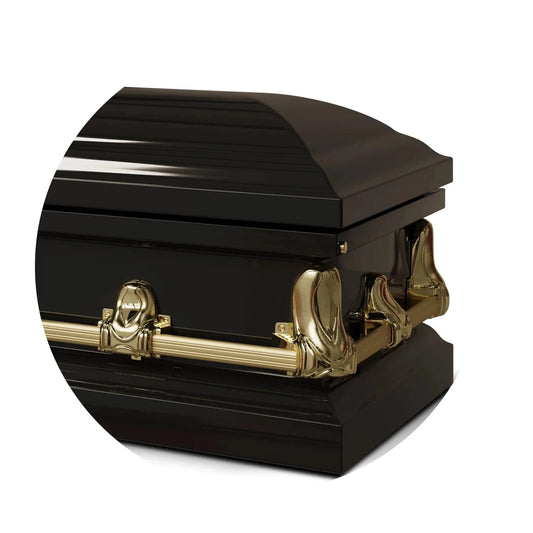Although it is now considered quite acceptable to use the words ‘cemetery’ and ‘graveyard’ interchangeably, there are some technical differences between the two words and how they were used originally.
What Is A Cemetery?
A cemetery is a large burial ground that is reserved solely for the purpose of serving as a site for burials. A cemetery differs from a graveyard in that it is usually unattached to a church and is therefore a more secular burial site. Cemeteries came into being when church-affiliated graveyards started getting full and there was a need for more gravesites.
This resulted in the establishment of secular burial grounds, both government and private, which are now referred to as cemeteries. The lack of religious connection to a cemetery can be advantageous as it places much fewer restrictions on what kind of headstone you can use. If you would like to have a more elaborate headstone on your gravesite, then you should choose a cemetery over a graveyard.
Plan Your Farewell with Grace – Our Pre-Planned Caskets Offer Peace of Mind
What Is A Graveyard?
A graveyard, much like a cemetery, is also a large ground used to bury the bodies of deceased people. However, a graveyard is usually attached to a church and is only available to be used as a burial ground by those who are members of the church or religion. For this reason, graveyards may also be smaller than a cemetery since they are restricted to the land available to the church.
A graveyard can be considered one type of cemetery since they are the same in essence, with the exception of the religious affiliation of a graveyard. A graveyard may be called a gravesite, or individual burial sites within the graveyard may also be referred to as gravesites. Since a graveyard is connected to a church, it may also have various restrictions in terms of the headstone that you can use. The upside to this is that it is unlikely to cost much.
What Is A Mausoleum?
A mausoleum is an external free-standing structure that serves as a tomb for one or more people. Generally, a mausoleum burial is an above-ground burial as opposed to being underground like a traditional burial. Most mausoleums are made out of marble, and they are often chosen by people because they provide protection from the elements, resulting in a much slower decomposition process of the body inside it.
Within the US, New Orleans might be the first city that comes to your mind when you think of mausoleums. However, nowadays, many states offer this option in above-ground cemeteries, including Florida and New York. Make sure to check with the cemetery or graveyard you have chosen about whether you will be allowed to construct a mausoleum for yourself if that is what you have chosen.
Cemetery Vs Graveyard Vs Mausoleum
A cemetery or a graveyard is essentially a burial ground, whereas a mausoleum is an independent structure, usually built on a cemetery or graveyard. A mausoleum may or may not be religious, which is why you can find them in both cemeteries and graveyards, depending on the regulations laid down by that particular mausoleum burial ground. While a cemetery and graveyard are very similar concepts, a mausoleum burial is a different entity entirely but is related to a cemetery or graveyard since that is where they are usually built.
Frequently Asked Questions
Q1: What Is The Difference Between A Graveyard And A Mausoleum?
Answer: A graveyard is an area where bodies are buried in the ground, while a mausoleum is a building where bodies are entombed above ground in compartments called crypts.
Q2: Is It Cheaper To Be Buried In The Ground Or In A Mausoleum?
Answer: Generally, being buried in the ground is cheaper than being entombed in a mausoleum, as the costs associated with constructing and maintaining a mausoleum are usually higher.
Q3: What Is The Purpose Of Being Buried In A Mausoleum?
Answer: Being buried in a mausoleum is often chosen for reasons such as family tradition, religious beliefs, or a desire for a permanent above-ground resting place that can be visited easily by loved ones.

![Upgrade to Premium Weight [18-gauge steel]](http://titancasket.com/cdn/shop/products/casketthicknesswithnumbers.png?v=1680642906&width=533)









